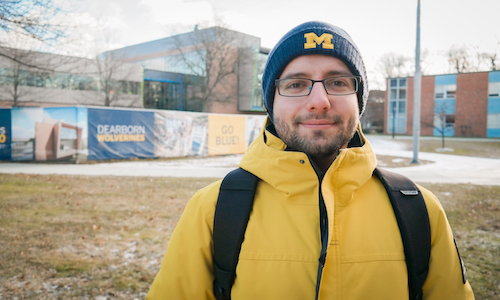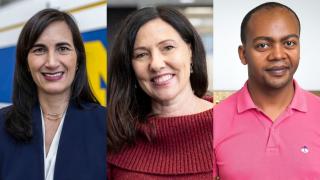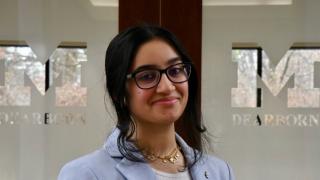At the start of 2017, while a master’s student in Moscow, Ruslan Akhmedagaev gave himself a goal of learning English — not because he had a particular application in mind, but simply as a form of “self-betterment.” It definitely wasn’t because he had plans — or even dreams — to study in the United States. But his new year’s resolution proved to be a door opener all the same. A few months later, his master’s adviser informed him of an opportunity to do a Ph.D. with a colleague working at an American university near Detroit. Akhmedagaev had never heard of Dearborn, but all of a sudden, that’s exactly where he wanted to be.
That unexpected dream to study abroad, however, meant he’d have to expedite his self-directed English program. He started practicing vocabulary for at least an hour a day. He watched American movies with the subtitles turned on for listening comprehension. All of it was aimed at passing one of the language exams required for entrance into the Ph.D. program. He narrowly missed the mark on his first two tries, so he switched to the test featuring British English and logged a passing score. Then with just two weeks until the program’s application deadline, he got past the other big entrance hurdle — the GRE — on the first try.
Akhmedagaev smiles when he recalls the next set of events: Getting his acceptance letter to UM-Dearborn the following May; boarding a plane bound for Detroit just a few months after that. The smile gets even bigger when he tells the story of his first real conversation with a native English speaker: A phone call from the Detroit airport in which he tried his best to score a taxi.
“It was so difficult — I failed two times,” he says, laughing. “I couldn’t understand anything because they were talking so fast. I was so freaked out because I thought this is just one simple step to get out of the airport! But luckily, the third time the taxi driver was very nice and explained to me very slowly where I needed to meet him and I was on my way.”
Now a year and a half later, his English is quite good. Last semester, he even taught a class in thermodynamics — the evaluations from which he’s eagerly awaiting. “I really hope that students didn’t have too much trouble with my English,” he says. “I can understand when the person who’s teaching doesn’t speak too clearly, it’s very difficult to concentrate and get excited about the subject. I wanted to have as normal an accent as possible, so I could get them excited.”
Akhmedagaev has at least two and a half years left in his doctoral program, and he says his top priority is finishing his research and dissertation. (That’s on computational fluid dynamics, by the way.) Beyond that, he has a couple of other goals for his time here — among them, visiting some “iconic” American cities like Los Angeles and New York, traveling to the Grand Canyon and making some friends on campus.
That last goal has been difficult, partly because he’s been so busy, and partly because he doesn’t have the national comradery that some international students enjoy: According to records, he is one of just two Russian graduate students now on campus, and so far, Akhmedagaev says their paths haven’t crossed. But if his American adventure included making some American friends, all the better.





